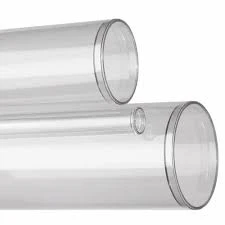Dec . 01, 2024 11:22 Back to list
Exploring the Versatility and Applications of PVC Bars in Various Industries
Understanding PVC Bar A Comprehensive Guide
Polyvinyl Chloride (PVC) is one of the most widely used synthetic plastic polymers in the world. Recognized for its versatility, durability, and cost-effectiveness, PVC comes in various forms and applications. Among the myriad of products derived from PVC, PVC bars have carved a niche for themselves across different industries. This article explores the characteristics, types, applications, manufacturing processes, and advantages of PVC bars.
What is PVC Bar?
A PVC bar is a solid, rectangular strip of polyvinyl chloride that is available in varying dimensions and thicknesses. Its structure makes it suitable for a wide range of applications, from construction to crafting. The bars are typically extruded, resulting in a smooth and consistent finish that enhances their aesthetic appeal.
Types of PVC Bars
PVC bars can be categorized based on their formulation and intended use. Some of the primary types include
1. Standard PVC Bars These are the most common and are used in a variety of general applications, including building and construction. They offer good weather resistance but may not perform well under extreme temperatures.
2. High-Impact PVC Bars Designed to withstand higher levels of stress, high-impact PVC bars are suitable for more demanding applications, such as in industrial settings where durability is paramount.
3. CPVC Bars Chlorinated Polyvinyl Chloride (CPVC) bars have enhanced temperature and pressure ratings, making them ideal for plumbing and hot water applications. Their heat resistance opens up new avenues for use in commercial and residential settings.
4. Foamed PVC Bars Lightweight and easy to work with, foamed PVC bars are often utilized in signage and displays. Their smooth surface and ability to be printed on make them a popular choice in marketing and advertising.
Applications of PVC Bars
The applications of PVC bars are extensive, making them an integral part of various industries
- Construction and Architecture PVC bars are commonly used in window and door frames, railings, and siding materials. Their resistance to rot, pests, and corrosion makes them suitable for both interior and exterior applications.
pvc bar

- Signage The smooth surface of PVC bars allows for easy printing and painting, making them ideal for custom signs and displays. Their lightweight nature also facilitates easy installation.
- Furniture Manufacturing PVC bars are increasingly used in the production of furniture due to their durability and aesthetic versatility. They can be crafted into various forms and finishes, suitable for residential and commercial settings.
- Industrial Applications In factories and warehouses, PVC bars serve functional roles such as creating barriers, storage systems, and protective casings for electrical components.
Manufacturing Process
The production of PVC bars typically involves an extrusion process. The raw PVC material is heated until it melts, then forced through a die that shapes it into the desired bar form. Once cooled, the bars are cut to size and finished to meet specific requirements. This automated process allows for high-volume production while maintaining consistent quality.
Advantages of PVC Bars
PVC bars offer numerous benefits that contribute to their popularity
- Cost-Effectiveness Compared to other materials such as wood or metal, PVC bars are usually more affordable, making them a preferred choice for budget-conscious projects.
- Durability PVC is resistant to moisture, chemicals, and UV light, which enhances its longevity and performance in diverse conditions. This durability translates to reduced maintenance costs over time.
- Ease of Fabrication PVC can be easily cut, shaped, and joined using various methods, including welding and adhesives. This flexibility allows manufacturers and artisans to work creatively with the material.
- Non-Toxic Modern manufacturing processes have enabled the production of PVC that is less harmful to the environment, making it safer for use in family and community spaces.
Conclusion
PVC bars are a versatile and practical solution in a world that increasingly values durability and economic efficiency. Their ability to be tailored to specific needs makes them an invaluable resource in construction, signage, furniture design, and industrial applications. As technology advances and production methods improve, the potential for PVC bars will likely expand, reinforcing their place in both contemporary and future developments across various sectors. Understanding the depth and breadth of PVC bars paves the way for innovative applications that transcend traditional boundaries.
-
High-Quality PPR Pipes and Fittings Durable ERA PPR & PVC PPR Solutions
NewsJul.08,2025
-
Black HDPE Cutting Board - Durable, Non-Porous & Food Safe HDPE Plastic Cutting Board
NewsJul.08,2025
-
High-Quality CPVC Panel Durable HDPE & PVC Panels Supplier
NewsJul.08,2025
-
Double PE Welding Rod Supplier - High Strength, Durable & Versatile Welding Solutions
NewsJul.07,2025
-
High-Quality PVC-O Pipe Supplier Durable 75mm PVC Pipe & Connections Leading PVC Pipe Company
NewsJul.07,2025
-
HDPE Drainage Pipe Supplier – Durable & Corrosion-Resistant Solutions
NewsJul.06,2025

